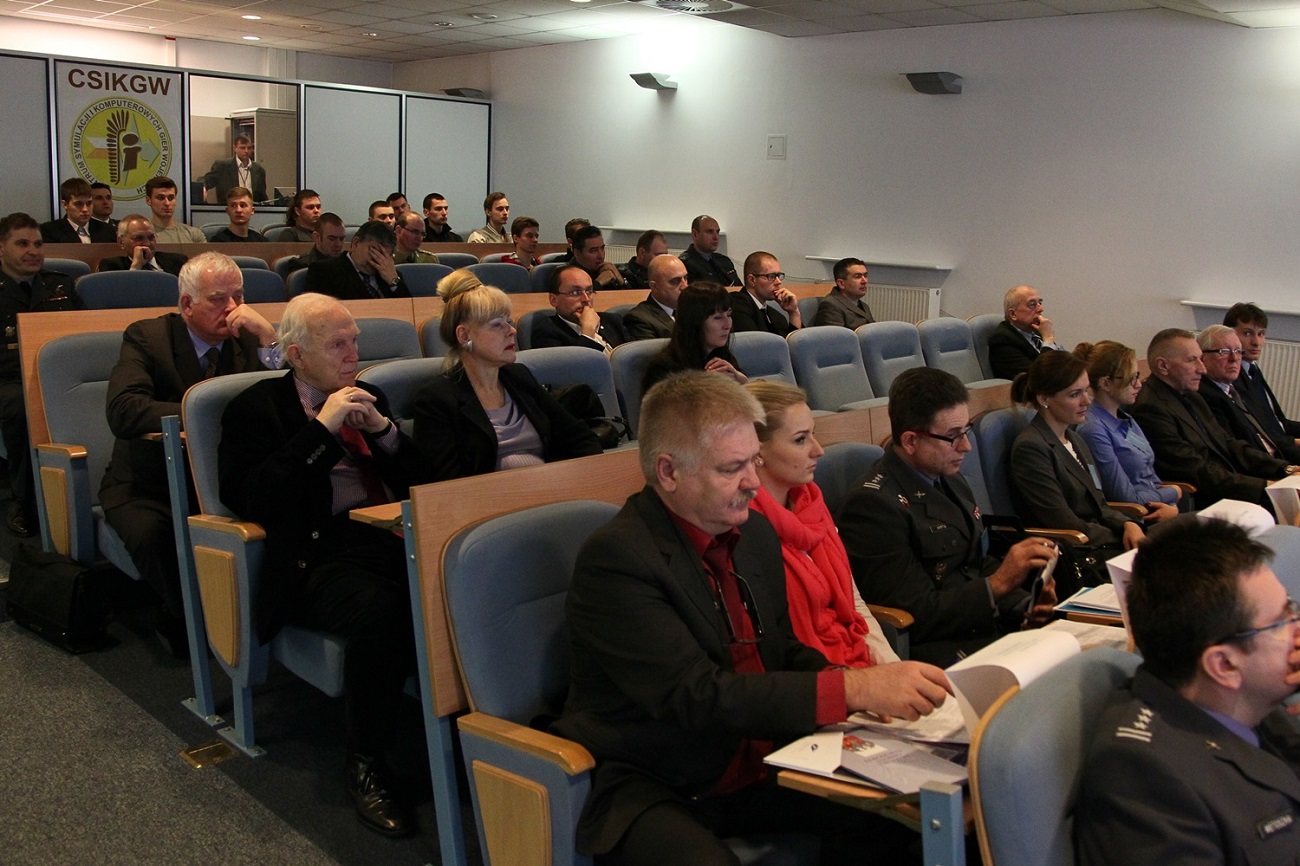On March 24, 2015 the National Defence Academy in Warsaw held the Conference "Civil and military aviation in the Single European Sky - dilemmas and challenges" organized by the Institute of Aviation and Air Defense. The conference was attended by the President of the Civil Aviation Authority Mr. Piotr Ołowski, who had granted the honorary patronage of the conference.
Participants of the Conference were welcomed by the Rector of National Defence Academy płk prof. dr hab. Dariusz Kozerawski. After opening remarks President of the CAA in his speech stressed out that the conference offered a forum for dialogue, where a civil party meets with military and scientific community meets the practitioners. He also mentioned that the current SES program with the complementary technological aspect of it in the SESAR program determine the main directions of development of the European air traffic management system, and although SES regulations are not directly applicable to military operations and training, the airspace is a common good, which was used both by users civilian and military. That is why such an important part of the implementation of the SES is a civil-military cooperation.
The conference was the fourth edition of the project, which was launched in 2012. This was the second time when it has been brought under the patronage of the CAA. The conference was divided into three panels. Among the speakers were representatives of the Ministry of Infrastructure and Development, Civil Aviation Authority, Polish Air Navigation Services Agency, the Air Traffic Services Command of Armed Forces, Military School of Air Force, as well as the National Defence Academy, Rzeszów University of Technology, University of Lodz, Warsaw School of Economics, School of Banking in Gdansk.
During the first panel there were discussed the issues related to the legal conditions of use of the airspace, the current implementation of the SESAR, implementation and change the of the Single European Sky, development direction of Functional Airspace Blocks, as well as issues related to the harmonization of Instrument Flight Rules in the air traffic.
The second panel was devoted to the conduct of air operations in the context of national security and defense. As part of the panel the security issues on common use of airspace by manned and unmanned aircraft, the assumptions for the draft law on the state of aviation in the context of the requirements of the SES, the share of military air traffic services in scope of the implementation of the Single European Sky were also held. The conditions and manner of conducting training of air traffic services staff, prevention of terrorist attacks on civilian aircraft and review of military operations of the potentially dangerous nature of civil aviation. During the third panel speakers presented organizational, technical and economic aspects of flight operations, among others the impact of air navigation charges for the European aviation market, the functioning of the Baltic FAB from the perspective of the Republic of Lithuania, the liquidation of airways in the entire country on the example of Hungary and legal conditions for air transport in Europe.


